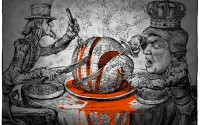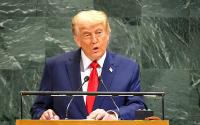An independent central bank focused exclusively on price stability has become a central part of the mantra of "economic reform". Like many other policy maxims, it has been repeated so often that it has come to be believed. But bold assertions are no substitute for analysis.
Research suggests that if central banks focus on inflation, they do a better job at controlling inflation. But controlling inflation is not an end in itself: it is merely a means of achieving faster, more stable growth, with lower unemployment.
These are the real variables that matter, and there is little evidence that central banks focusing exclusively on price stability do better in these crucial respects. George Akerlof, who shared the Nobel prize with me in 2001, and his colleagues have argued that there is an optimal rate of inflation, greater than zero. So ruthless pursuit of price stability harms economic growth and well-being. Research even questions whether targeting price stability reduces the trade-off between inflation and unemployment.
A focus on inflation may make sense for countries with a long history of it, but not for others, like Japan. America's central bank, the Federal Reserve, is mandated not only to ensure price stability, but also to promote growth and full employment. There is consensus in the US against a narrow mandate, such as that of the European Central Bank. Today, Europe's growth languishes because the ECB is constrained by its focus on inflation from promoting economic recovery.
Technocrats and financial market players who benefit from this institutional arrangement have done a good job in convincing many countries of its virtues, and of the need to treat monetary policy as a technical matter that should be above politics. That might be the case if all that central bankers did was, say, choose computer software for clearing payments.
But central banks make decisions that affect every aspect of society, including rates of economic growth and unemployment. Because there are trade-offs, these decisions can only be made as part of a political process.
Some argue that in the long run there are no trade-offs. But, as Keynes said, in the long run, we are all dead. Even if it were impossible to lower unemployment below some critical level without fuelling inflation, there is uncertainty about what that critical level is. Accordingly, risk is unavoidable: monetary policy that is too loose risks inflation; if it is too tight, it can cause unnecessary unemployment.
During America's growth boom in the 1990s, the Clinton administration believed that it was worth the risk of pushing the unemployment rate lower, especially when the social gains - declining welfare roles, reduced violence - were added to the economic benefits. By contrast, the IMF urged tighter monetary policy, because it put far less weight on the cost of unemployment, seemingly no weight on the ancillary benefits of reducing it, and greater weight on the costs of potential inflation.
The economic analysis of Clinton's council of economic advisers turned out to be right; the models of the IMF (and the Fed) were wrong. America secured a lower rate of unemployment without inflation - eventually unemployment fell to below 4%.
But that is not the point: the point is that no one could be sure. A calculated risk is always unavoidable. Who bears it varies with different policies, and that is a decision that should not be left to central bank technocrats. While there is a legitimate debate about the degree of independence accorded to central banks within a democracy, the perspectives of those whose well-being is affected by the decisions taken should be represented.
Workers do not have a seat at the table. But financial markets are typically well represented. And yet financial markets hardly have a monopoly on technical competence. Indeed, many in the financial community have little understanding of the intricate workings of the macroeconomic system - as evidenced by their frequent mistakes in managing it.
Whatever the merits of a common currency, those in Europe deliberating about adopting the euro should consider whether they should tie their fortunes to an institutional arrangement whose flaws are apparent. Likewise, developing countries need to consider not only the central bank's independence, but also its mandate and representativeness. They need to balance concerns about economic efficiency with those of democratic accountability.
In many new democracies, citizens are bewildered. The virtues of the new regime are first praised, but then they are told that the macroeconomic policy decisions about which they care most are too important to be left to democratic processes. Citizens are warned against the risks of populism (meaning the will of the people?).
There are no easy answers. But in too many countries, nor is there democratic debate about the alternatives.
· Joseph Stiglitz is professor of economics at Columbia University, and the winner of a 2001 Nobel prize. He is the author of Globalization and Its Discontents
© Project Syndicate project-syndicate.org






